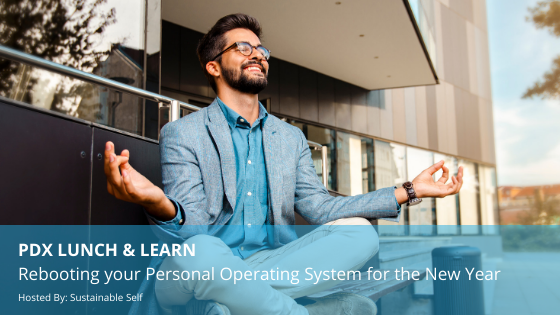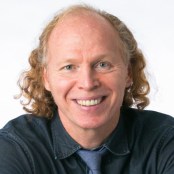You may have heard me speak or write about imagining your mind as “Your Psychological “Operating System” with cognitive “programs” that guide how you think about yourself, get along with others, and perform at work and at home.
And, to improve our operating system, we must deal with “Overcoming Your Psychological “Code Debt” – the buildup of old mental programs, patches and “work-arounds” in our thoughts and actions that get us through our days but might no longer be optimally effective or help us meet our true needs.
Code debt certainly affects individuals, but it also occurs in groups, teams, companies, and families.
I’ll be exploring these ideas at this lunch time event for the Technology Association of Oregon on January 8, 2020.
If you are local, come check it out! It’s a new decade and no better time to get our inner programs in order. If you are at distance, contact me about how I might help you or your team with these ideas.
— Dr. Thomas J. Doherty

PDX Lunch & Learn: Rebooting your Personal Operating System for the New Year
Wed, January 8, 2020
11:30 AM – 1:00 PM PST
Stoel Rives
760 SW Ninth Ave., Suite 3000
Portland, OR 97205
In the computing world, “code debt” (and the related concept of technical debt) refers to a buildup of old programs, patches and “work-arounds” that may get us through our day-to-day work, but are no longer efficient or effective. Eventually we spend more time patching the old system than building the new, more effective one that we know we need.
On a personal level, most of us also harbor older “psychological programs” that are outdated, or even frankly dysfunctional. We must contend with “legacy” attitudes or behaviors that may have helped us to survive in past situations, but get in the way of our full and healthy functioning in the present day – a psychological code debt. Even healthy thought patterns from the past can become ineffectual when we move into a new phase of life or a new role or position. And of course, teams and organizations also exhibit collective “psychological operating systems” and can be impacted by “code debt.”
Join Technology Association of Oregon and Dr. Thomas Doherty of Sustainable Self for a Lunch & Learn on Wednesday, January 8th from 11:30 am – 1:00 pm at Stoel Rives as we assess if our psychological software is up-to-date and we are acting as our most mature and highly functioning self.
Dr. Thomas Doherty will share insights he has developed through working with professionals in the tech sector, including computing analogies to help workers get a handle on their thought processes and better understand why they act the way they do, especially in personal and professional relationships. He will discuss ways to think of our mind or psyche as having an overarching “operating system” with cognitive “programs” that guide how we think about ourselves, assess threats and opportunities, and perform in various settings. He will also share techniques to overcome psychological “code debt”—outmoded belief systems about your identity or ability that may have made sense years ago but hold you back now.
Attendees will learn how to recognize old systems and programs—earlier ways of being and relating—and understand how they might still influence behaviors. The concepts of psychological operating systems and code debt provide a framework for technology professionals and teams to improve their performance by identifying outmoded assumptions and behavior patterns and rediscovering their core strengths and values.
Presenter
 Dr. Thomas Doherty
Dr. Thomas Doherty
Psychologist & Founder
Sustainable Self
An award-winning psychologist who provides counseling and coaching to technology professionals, Dr. Thomas Doherty draws on his experience in health care and his academic research on well-being and environmental sustainability. He coordinates the Thriving Communities initiative within the Global Cities Team Challenge that seeks to foster well-being, beneficial connections with nature, vibrant arts and culture, and equity and shared prosperity in smart and connected cities. Dr. Doherty is a fellow of the American Psychological Association and a past president of the Society for Environmental, Population and Conservation Psychology. He has multiple publications and his paper “The Psychological Impacts of Global Climate Change” has been cited over 400 times. He has provided workshops and trainings for the organizations such as the Technology Association of Oregon, the Port of Portland, the California Department of Health, the US National Park Service, the New Zealand Department of Conservation.
Who Should Attend
This Lunch & Learn is geared toward a range of technology professionals seeking insight, personal growth and performance improvement. The activities will support new year’s goal setting and adjustment to new roles and positions. The concepts may be particularly helpful for managers, trainers, and human resources professionals.

